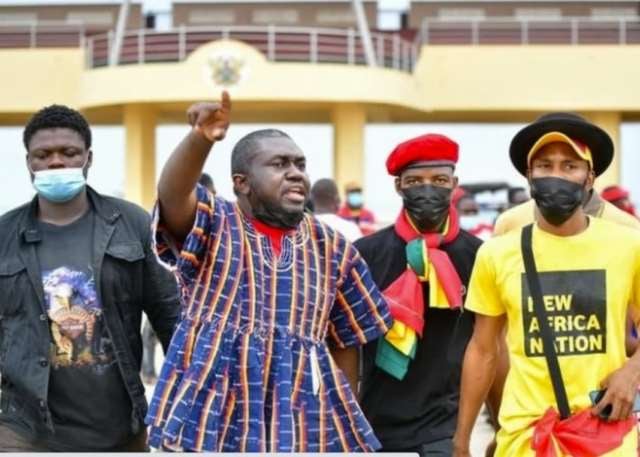Oliver Barker-Vormawor, the leader of Democracy Hub, a civil society organization, has issued a stern warning to the Ghanaian government regarding the controversial Legislative Instrument (LI) 2462, which permits mining activities within forest reserves. Barker-Vormawor asserts that if the government fails to repeal this legislation, Democracy Hub will initiate a series of escalating protests, beginning with a widespread online campaign on Earth Day, April 22nd, and culminating in street demonstrations if their demands remain unmet. The online protest, planned to run from 7 am to 10 pm, encourages Ghanaians across all social media platforms to express their concerns through open letters addressed to “Mother Ghana,” using the hashtag #EndGalamseyNow to amplify their message. This digital mobilization serves as a precursor to potential physical protests, reflecting the group’s commitment to challenging the government’s perceived inadequate response to the environmental threat posed by mining in protected areas.
The core of Democracy Hub’s grievance lies in the government’s decision to merely amend, rather than entirely repeal, LI 2462. This regulation, formally known as the Environmental Protection (Mining in Forest Reserves) Regulations, 2022, was enacted in November 2022 and has been met with significant resistance from environmental activists and concerned citizens. The legislation permits mining operations in all forest reserves, encompassing both production forests designated for sustainable timber harvesting and protected areas crucial for biodiversity conservation. Critics argue that this policy undermines environmental protection efforts and risks irreversible ecological damage. They view the proposed amendments, which focus on removing the President’s power to grant mining concessions in forest reserves, as insufficient to address the fundamental issue of preserving Ghana’s forests from extractive industries.
The government, however, defends its approach. Dr. Ibrahim Murtala Muhammed, Minister for Environment, Science, Technology, and Innovation, has argued that public concern primarily centered on the presidential discretion embedded within the original legislation, not the law itself. By removing this discretionary power, the government believes it is addressing the core criticism. The Minister further contends that the opposition National Democratic Congress (NDC), his own party, has never outright opposed LI 2462, suggesting a broader consensus on the principle of regulated mining in forest reserves. This defense, however, fails to appease environmental groups like Democracy Hub, who view any level of mining within these protected zones as unacceptable.
The impending protests underscore the growing tension between the government’s development agenda, which seemingly prioritizes resource extraction, and the imperative to safeguard Ghana’s fragile ecosystems. The rallying cry to #EndGalamseyNow specifically targets illegal small-scale gold mining (galamsey), a practice that has devastated vast tracts of forest and polluted waterways. While LI 2462 is not exclusively focused on galamsey, critics argue that it creates a legal framework that could exacerbate the problem by legitimizing mining activities within previously protected areas. They fear that this could lead to increased deforestation, habitat loss, and water contamination, with devastating consequences for biodiversity and local communities.
The online protest organized by Democracy Hub is a strategic move to mobilize public opinion and exert pressure on the government. By leveraging the symbolic power of Earth Day, a globally recognized event dedicated to environmental protection, the group aims to raise awareness about the potential environmental ramifications of LI 2462 and garner support for their demand for its complete repeal. The use of social media platforms, coupled with the targeted hashtag #EndGalamseyNow, provides a readily accessible avenue for citizens to express their concerns and contribute to the growing chorus of voices calling for stronger environmental protections. The success of this digital campaign will largely depend on its ability to generate widespread public engagement and create a sustained pressure campaign that compels the government to reconsider its stance.
The threat of subsequent street protests signifies a willingness to escalate the pressure if the online campaign fails to achieve its objective. This demonstrates the seriousness of Democracy Hub’s commitment to environmental protection and their determination to hold the government accountable for its policies. The potential for street protests also adds a significant dimension to the unfolding conflict, as it raises the possibility of direct confrontation with law enforcement and the potential for social unrest. The government’s response to these protests will be crucial in determining the trajectory of the conflict and the future of Ghana’s forest reserves. The outcome of this confrontation will have significant implications for the balance between economic development and environmental protection in Ghana, setting a precedent for future policy decisions concerning natural resource management.














